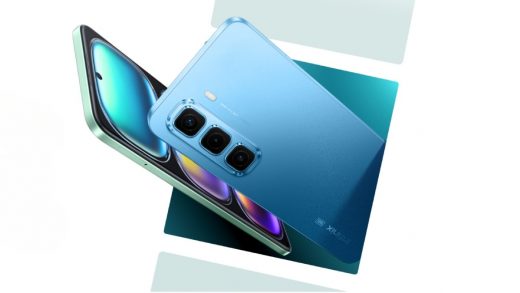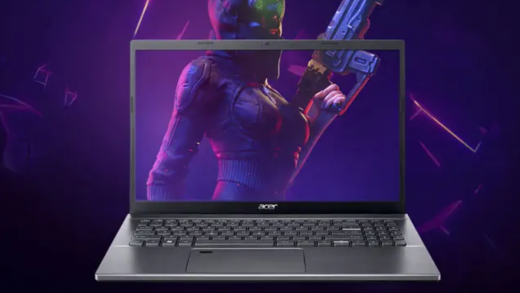
The Motorola Razr series has been one of the most recognisable phones in human history. It also sold well and made much money for the now Lenovo-owned Motorola. The flip phones took the foldable flip route in late 2020 and are currently in their 5th generation. We got two phones this year, the Razr 50 Ultra and Razr 50. While the latter looks similar to last year’s model, the new Razr 50 is a big upgrade in terms of design when compared to the Razr 40.
Motorola’s Razr 50 is like the Razr 40 Ultra in many ways, but cheaper. The phone is priced at Rs. 64,999 in India and is only available with 8GB RAM and 256GB storage. Is this a phone you should consider instead of the more expensive Ultra or something from Samsung? Should you upgrade from the Razr 40? I answer all that and more in the review.
Motorola Razr 50 Design: Really good and functional
- Dimensions (Closed) – 73.99 x 88.08 x 15.85mm
- Dimensions (Open) – 73.99 x 171.30 x 7.25mm
- Weight – 189g
- Colours – Beach Sand, Koala Grey, Spritz Orange
The new Motorola Razr 50 looks very different compared to the Razr 40 from the front. You still get the rounded corners, curved sides, the flat hinge design at the back, and the vegan leather finish on the lower part of the phone. There’s a vegan leather finish on the lower half of the back panel and a thin strip of vegan leather on the top part. The vegan leather finish offers a good grip. We received the Spritz Orange unit for review, and it is a unique colour option that will grab attention.
![]()
The bottom half of the phone looks similar to last year’s Razr 40
Button placements are similar to last year’s model. The right edge of the top half houses the volume and the power keys. The power button also doubles as a fingerprint scanner and works well. You’ll find the SIM tray tool on the left side of the top half. The top edge houses a microphone. Finally, the USB Type-C port, speaker, and microphone are placed on the bottom edge of the lower half.
One of the most important aspects of the Razr 50 design is obviously the hinge and its mechanism. Motorola claims that it has redesigned the hinge to be more durable, all while reducing its volume by about 30 percent compared to the previous model. The hinge is also said to offer better dust protection with an IPX8 rating, and I found it very effective. However, you also need to be careful not to leave any dust on the inner panel when closing it shut, as it may damage the display. The hinge cover is made from stainless steel, whereas the phone’s frame is made using 6000 series aluminium. All surfaces get a smooth satin finish that makes the phone feel premium.
![]()
The vegan leather finish and the curved frame make the phone easy to hold
The hinge also has a short range, which means that you can keep the display open only at certain angles. Cross this angle, and the phone will automatically close or open, which is excellent as the hinge makes it easier to open the phone with one hand. However, opening the phone in one hand is still a task. The hinge allows for certain use cases, such as a tent, camcorder, and table stand modes.
A new floating plate in the hinge is claimed to be less stressful on the folding panel and helps reduce the crease. Although Motorola advertises the Razr 50 as nearly creaseless, it’s not the case. There’s a visible crease, but you don’t really notice it when viewing videos of scrolling through Instagram. You’ll only feel its presence when sliding your finger over the inner display or when looking at the screen at certain angles.
Motorola Razr 50 Display: Big upgrade
- Outer screen – 3.63-inch OLED, 1056 x 1066 pixels, 90Hz
- Internal flex screen – 6.9-inch pOLED LTPO, full-HD+, 120Hz, HDR10+
- Protection – Gorilla Glass Victus (Outer)
The Motorola Razr 50 gets a massive upgrade in the display department, but only on the outside. Instead of the smaller, not very useful display that was present in the Razr 40, you now get a 3.63-inch 10-bit OLED panel that offers a 90 Hz refresh rate, up to 1,700 nits of peak brightness, and HDR 10 support. The panel features cutouts for the cameras and the LED flash. You can watch videos on this screen, but I’d not recommend it. It’s suitable for playing some of the pre-installed cover screen games, though. The screen also gets plenty of bright outdoors and is easy to read.
![]()
The Razr 50’s outer display is super useful
Opening the phone reveals a taller-than-usual flexible plastic 10-bit OLED display that offers a 120Hz refresh rate, up to 3,000 nits of peak brightness, and HDR 10+ support. You get three colour modes on the panel – Natural, Radiant, and Vivid. Sticking to the Natural option is best, as the other modes tend to boost the colours a bit too much. The inner display offers a 22:9 aspect ratio, which is excellent for watching movies but isn’t the best when watching 16:9 content on YouTube. The panel is easy to read under direct sunlight but is a bit more.
Both displays offer Widevine L1 support, so you can enjoy viewing content in full HD across Netflix and other streaming apps.
Motorola Razr 50 Software: There’s plenty to keep you flipping
- OS – Android 14
- UI – Hello UI
- Latest security patch – August 1st
Software is another crucial part of foldable phones, and Motorola has done a great job with its Hello UI. While it still looks close to stock Android, some design elements and added Moto features set it apart. You get a couple of preinstalled apps, but these are not really bloatware and can be uninstalled. There are also several Moto apps and features, such as Moto Secure, Family Space, Moto Unplugged, Smart Connect, and a few others.
![]()
There’s no bloatware on the phone
Motorola has also included a couple of AI tools to help you create wallpapers. There’s Style Sync and Magic Canvas, but the latter requires you to have a Moto account. Style sync lets you create wallpapers from captured photos, whereas Magic Canvas lets you create images using text prompts.
You can run pretty much any app on the outer screen. There are several pre-installed games that run great on the cover display and can be fun to use. Apart from using apps and playing games, Motorola also supports the use of Google Gemini on the cover display, and you get three months of free Gemini Advanced when you purchase the Razr 50 phones. The interface has been optimised for the outer screen, and it’s easy to have conversations with Gemini.
![]()
The cover display offers various modes and supports most apps
As for software support, Motorola has promised 3 years of Android OS and 4 years of security updates for the Razr 50.
Motorola Razr 50 Performance: Could’ve been better
- Processor – MediaTek Dimensity 7300X
- RAM – 8GB LPDDR4X
- Storage – 256GB UFS 2.2
I feel like the only downside of the Motorola Razr 50 is the chipset and, consequently, the performance it offers. It’s very strange that the company decided to go with a MediaTek chipset for the Razr 50, whereas the Ultra option gets a Snapdragon SoC. The Dimensity 7300X on the phone is coupled with 8GB LPDDR4X RAM. I ran a couple of synthetic benchmarks on the phone, and it delivered okayish results. Older phones, such as the Tecno Phantom V Flip, scored better in the tests.
| Benchmark | Motorola Razr 50 | Tecno Phantom V Flip | Oppo Find N3 Flip |
|---|---|---|---|
| AnTuTu v10 | 647,833 | 706,648 | 1,027,655 |
| PCMark Work 3.0 | 12,932 | 14,392 | 15,150 |
| Geekbench 6 Single | 902 | 1,106 | 1,998 |
| Geekbench 6 Multi | 2,675 | 3,220 | 5,176 |
| GFXB T-rex | 91 | 60 | 120 |
| GFXB Manhattan 3.1 | 47 | 51 | 111 |
| GFXB Car Chase | 26 | 35 | 94 |
| 3DM Slingshot Extreme OpenGL | 5,037 | Maxed Out | Maxed Out |
| 3DM Slingshot | 5,762 | 6,820 | Maxed Out |
| 3DM Wild Life | 3,142 | 4,421 | Maxed Out |
| 3DM Wild Life Unlimited | 3,152 | 4,536 | 12,923 |
The performance offered by the Dimensity 7300X, an octa-core 4nm processor, is enough for daily tasks like messaging, calls, using the browser, watching videos, and so on, but you will notice some leg when launching apps or multitasking on both the outer as well as the inner screen. App transitions from cover to primary to main and vice versa were also primarily smooth. You can play games on the phone. I tried titles such as BGMI and Asphalt 9, and both worked well. There are plenty of games available for the front display as well, and they work quite well without any lag. The phone didn’t run very hot while gaming, either.
![]()
The display is readable under direct sunlight
The phone did lag at times when using the Camera app to take photos or even switching between the cameras. In some cases, the camera viewfinder would go blank for several seconds.
Motorola has offered a hybrid dual speaker setup with Dolby Atmos on the Razr 50, and they work well. There’s some bass here, and the speakers can get loud. They’re good for indoor use, but it’s best to carry a pair of earphones for outdoor use. Call quality and connectivity on the phone are pretty good and I didn’t encounter any dropped calls. I did, however, notice some WiFi connectivity issues while playing games, but it only happened once to call it a problem.
Motorola Razr 50 Cameras: Good enough
- Main – 50-megapixel, f/1.7, OIS
- Secondary Ultrawide – 13-megapixel, f/2.2, 120 degree FoV
- Inner selfie – 32-megapixel, f/2.4
The main camera is shared with the Ultra, along with the inner 32-megapixel unit. However, unlike the Ultra’s telephoto, the standard Razr 50 gets a 13-megapixel ultrawide with autofocus. The cover screen lets you use the primary and ultrawide to take selfies, and there’s also a split screen interface that lets you shoot with ease. As if the nostalgia of the flip form factor wasn’t enough, Motorola has gone ahead and included a camcorder mode that’s more form than function.
![]()
Photos from the main camera are pretty good
Photos coming out of the main camera in daylight conditions have good detail and dynamic range with very little to no noise, but there’s plenty of sharpening and over-saturation. The greens look greener, and the sky looks bluer.![]()
![]()
Samples from the primary 50-megapixel camera [Tap to expand]
Switching to the ultrawide camera, the results look very different, with less detail, darker shadows, and colour inconsistency. The ultrawide also doesn’t do dynamic range and white balance well. Photos are usable, but nothing great.![]()
![]()
Samples from the Ultrawide camera [Tap to Expand]
There’s also a 2x digital zoom option and a Macro mode available. The 2x zoom produces good photos in daylight, but you will find plenty of noise if you zoom in. Meanwhile, the macro photo can produce good results.
Macro photos come out good when there’s plenty of light [Tap to Expand]
In low light conditions, the main camera still does a good job of preserving details and shadows, but the white balance can be off. Saturation and exposures are handled well, though. The ultrawide doesn’t really do well in low light conditions unless you give it a lot of light. A Night mode is available, but that works better with the main camera.![]()
![]()
![]()
Lowlight samples: Top – Main camera; Bottom – Ultrawide [Tap to Expand]
The selfie camera on the inner display produces good results in daylight conditions with pretty realistic skin tones, good colours, and a wide dynamic range. There’s a good amount of detail as well. However, it’s just better to use the main external camera for selfies, which produces better details.
Coming to video performance, the Razr 50 can shoot 4k 30fps on all cameras with stabilisation. The primary camera takes good daylight videos with lots of detail and slightly saturated colours. Stabilisation is decent, but you’ll notice the shakes if you’re walking or running. Motorola claims it uses AI to reduce the shakiness, but it doesn’t really work that well most of the time. The ultrawide camera doesn’t do that well in videos.
Motorola Razr 50 Battery: You can flip it all day
- Capacity – 4,200mAh
- Charging – 30W
- Charger – 33W included in-box
The Motorola Razr 50 offers impressive battery life for a flip phone even though it receives the same battery capacity as last year. I constantly got over 7 hours of screen time on the phone, and this is probably because I did most of the messaging on the outer display. Thanks to this, the phone easily lasted over a day of usage. I’d flip open the screen only for using the camera, some gaming, checking emails, watching videos, and scrolling Instagram. Gaming continuously drains the battery a lot, though.
![]()
The battery life on the phone is impressive
In our battery test, the phone lasted over 25 hours on a single charge. Talking about charging, the Razr 50 supports 30W fast charging and takes about 1 hour and 10 minutes to go from 10 percent to full. There’s also support for wireless charging at 15W.
Motorola Razr 50 Verdict
At Rs. 64,999, there are not a lot of other options in the market. You can check out the Oppo Find N3 Flip (Review), which offers much better performance and a better pair of cameras. Unfortunately, it does have a less usable outer screen. You also have the Tecno Phantom V Flip (Review) from last year, but that’s not really better in any way. It’s also an excellent alternative to the Samsung Galaxy Z Flip 6 if performance isn’t your main concern.
The Motorola Razr 50 is a great-looking phone with a lot of nostalgia and features that are somewhat let down by its processor. The outer display is great, you get a nice camera setup, excellent battery life for a phone with two screens, fast charging, an IPX8 rating, a super compact form factor, AI features, good software, and 9,999 style points. If you don’t want to spend much money but want a flip-style foldable, the Motorola Razr 50 is mostly excellent. It’s also a worthy upgrade from the Razr 40.


